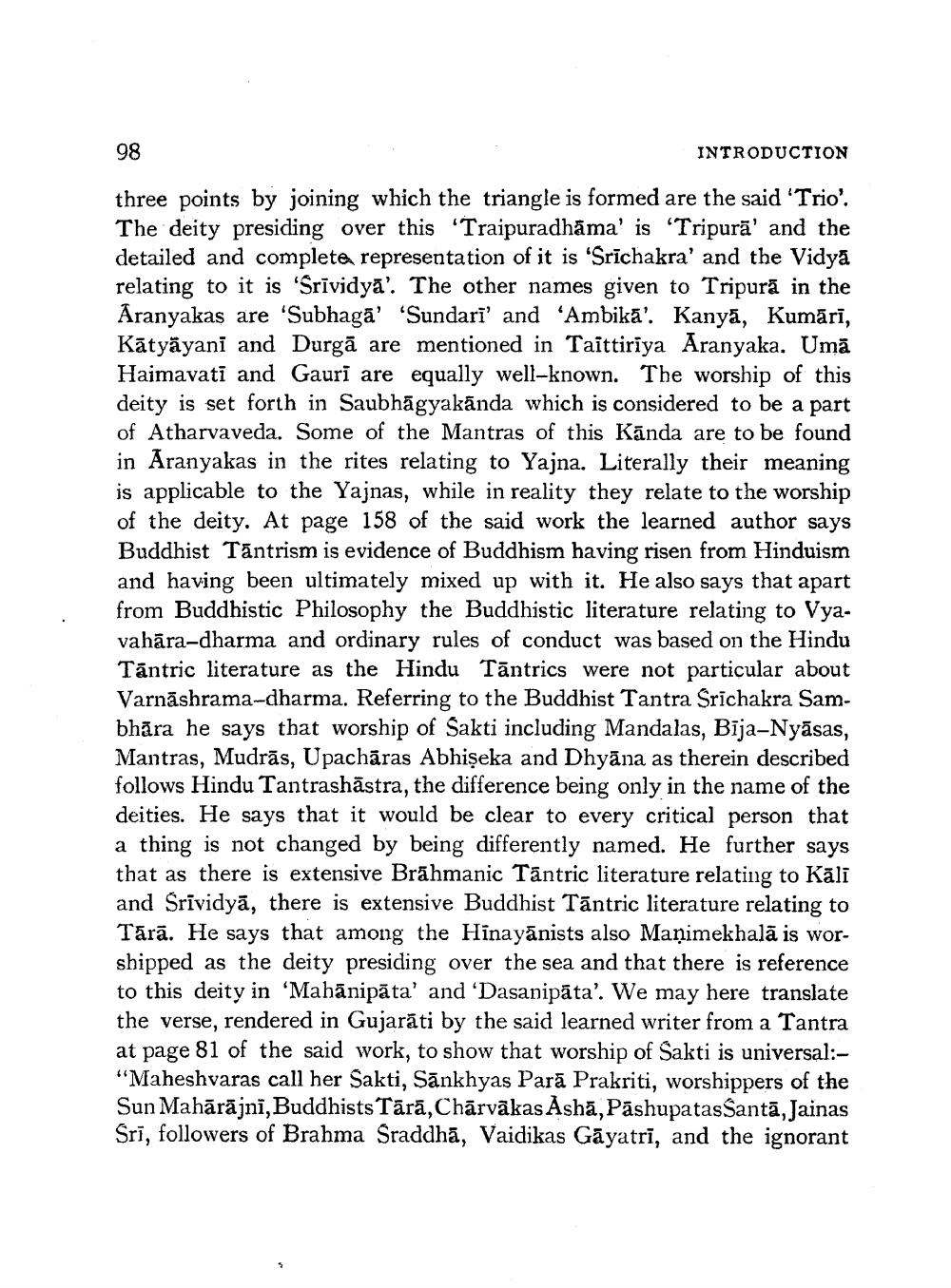________________
98
INTRODUCTION
three points by joining which the triangle is formed are the said 'Trio'. The deity presiding over this 'Traipuradhama' is 'Tripurā' and the detailed and complete representation of it is 'Srichakra' and the Vidya relating to it is 'Srividya'. The other names given to Tripura in the Aranyakas are 'Subhagā' 'Sundarī' and 'Ambikā'. Kanyā, Kumārī, Kātyāyani and Durgā are mentioned in Taittiriya Aranyaka. Umā Haimavati and Gauri are equally well-known. The worship of this deity is set forth in Saubhāgyakānda which is considered to be a part of Atharvaveda. Some of the Mantras of this Kānda are to be found in Aranyakas in the rites relating to Yajna. Literally their meaning is applicable to the Yajnas, while in reality they relate to the worship of the deity. At page 158 of the said work the learned author says Buddhist Tantrism is evidence of Buddhism having risen from Hinduism and having been ultimately mixed up with it. He also says that apart from Buddhistic Philosophy the Buddhistic literature relating to Vyavahāra-dharma and ordinary rules of conduct was based on the Hindu Tāntric literature as the Hindu Tāntrics were not particular about Varnāshrama-dharma. Referring to the Buddhist Tantra Srichakra Sambhāra he says that worship of Sakti including Mandalas, Bīja-Nyāsas, Mantras, Mudrās, Upachāras Abhişeka and Dhyāna as therein described follows Hindu Tantrashāstra, the difference being only in the name of the deities. He says that it would be clear to every critical person that a thing is not changed by being differently named. He further says that as there is extensive Brāhmanic Tântric literature relating to Kāli and Srividyā, there is extensive Buddhist Tāntric literature relating to Tārā. He says that among the Hinayānists also Manimekhalā is worshipped as the deity presiding over the sea and that there is reference to this deity in 'Mahānipāta' and 'Dasanipāta'. We may here translate the verse, rendered in Gujarāti by the said learned writer from a Tantra at page 81 of the said work, to show that worship of Sakti is universal:"Maheshvaras call her Sakti, Sankhyas Parā Prakriti, worshippers of the Sun Mahārājni, Buddhists Tārā, Chārvākas Ashā, PashupatasSantā, Jainas Sri, followers of Brahma Sraddhā, Vaidikas Gāyatrī, and the ignorant




